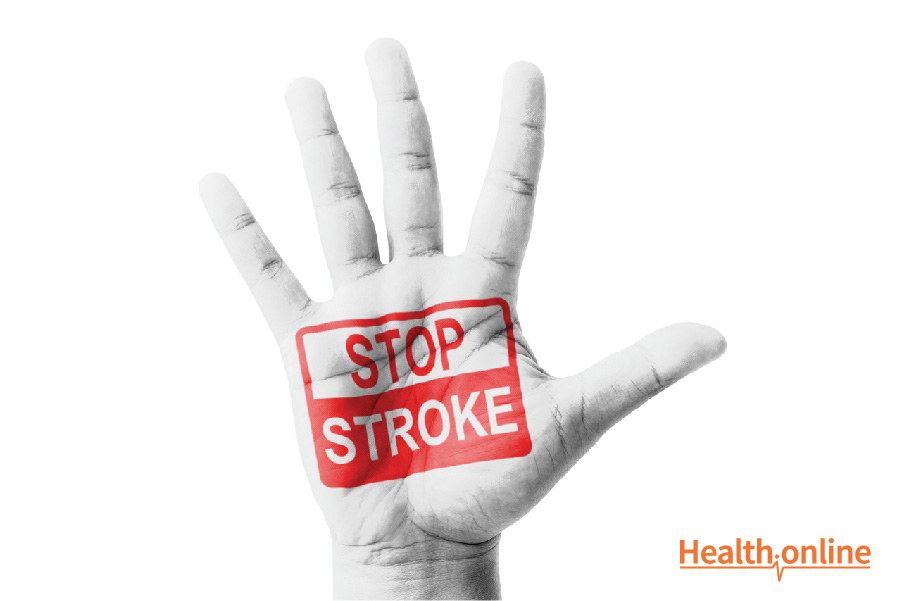
Prevention of Stroke
Have regular medical exams and keep blood pressure in check
You should see your family physician regularly to be guided on proper ways of taking care of your health. Specifically, to decrease risk of stroke, you need to keep your blood pressure in a healthy range. Normal is around 130/85 or lower—at this number you need to watch your diet, perform physical exercises, and control your weight. If your blood pressure is 140/90 or higher, you need to start taking some forms of medications along with lifestyle changes, such as refraining from fatty and salty foods and having regular physical exercises.
Inquire from your family physician if you have atrial fibrillation
Atrial fibrillation is a medical condition where the beating of your heart is not abnormal. When your heart beats are not regular the flow of blood in the different chambers of your heart will not smooth and free flowing. When this happens, a large amount of blood stagnates inside your heart and this will lead to the formation of blood clots. If these are accidentally dislodged from your heart they will go with your bloodstream and travel all over your body. The worst scenario takes place when a clot, or clots, travel to any of your cerebral arteries and results in a stroke.
If you visited your family physician and he found out that you have atrial fibrillation, he would likely prescribe you with medications to control the heart rhythm and prevent blood clotting.
Avoid or stop cigarette smoking
Cigarette smoking adversely affects all organs of your body. It damages your heart, lungs, and blood vessels. Specifically, when you smoked cigarettes for several number of years, the inner lining of your blood vessels, medically known as endothelium, is damaged and harmed by your habit. If your endothelium is hurt by smoking, you are prone to have fatty deposits in your blood vessels, and you will likely eventually suffer from atherosclerosis which could lead to hypertension and then stroke.
Moderate intake of alcohol
If ever you are fond of alcohol, have it in moderation. There are reports from medical journals that moderate intake of alcohol has beneficial effects on your arteries and cholesterol level. This would be having a glass of wine with dinner. If you drink more alcohol, you will negate the beneficial effects and instead will reap adverse consequences—one possibility is stroke.
Find out your cholesterol level
It has been established that elevated cholesterol levels in your blood will lead to atherosclerosis , followed by hypertension , and then stroke . It is necessary that you have blood chemistry testing to determine cholesterol levels . If it is elevated—that is, beyond the normal range—then you need to implement lifestyle changes such as exercise and low fat diet. If lifestyle changes are not enough you may need to take a medication in addition to avoiding foods rich in saturated fats , such as beef, pork, and lamb.
Know your blood sugar
To avoid atherosclerosis and hypertension, it is necessary that you find out if you have diabetes mellitus. This you can do by submitting yourself to a blood chemistry examination which includes the determination of fasting blood sugar (FBS). If your FBS is normal, then you do not have a problem. However, if it is elevated—then you need to consult your family physician or a diabetologist so that you could be prescribed with the necessary medication(s). Your blood sugar needs to be controlled as early as possible so that various complications, such as atherosclerosis, hypertension, and stroke could be averted.
Have regular and periodic physical exercises
The health benefits of periodic and regular physical exercises have been well established in various scientific inquiries. If you have elevated blood pressure, physical exercises will help you control it. A 30-minute walk which is done daily is enough to give you well-being, good mood, and disposition. More importantly, it could normalize your blood pressure, thus avoiding stroke.
Avoid high-salt and high-fat diet
If your diet is frequently high in salt and fat, you will eventually develop hypertension. If you have hypertension already, a high salt diet will cause symptoms to get worse and you might have stroke. Hence you should have a low salt diet of less than 2 grams of salt per day or lower depending on what your doctors suggests.




